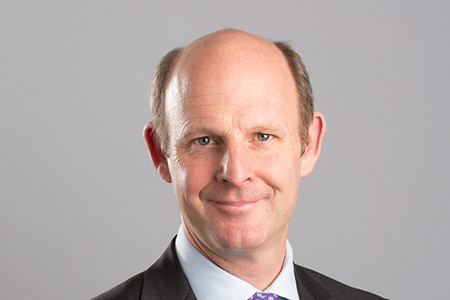
Inmarsat has announced the unaudited financial results for H2 and Q2.
The company claims a robust performance in H1 of 2019, supported by a diversified growth portfolio, with revenue growth delivered in a focussed set of core end markets.
Aviation delivered a revenue growth of $38.6m, up 33.4%, to $154.1m in the half, driven by IFC equipment sales, further growth in GX airtime revenue and continued stable growth from the core business.
Government revenues increased by $27.9m, up 15.2%, to $211.0m in the first half, supported by several new business wins and expanded mandates achieved over the previous 12 months, increased government expenditure under long term customer contracts and further underlying growth from the Boeing Take-or-Pay contract.
GX-generated revenues increased $60.1m to $176.4m (H1 2018: $110.2m), including $90.7m in Q2 2019 (Q2 2018: $60.2m).
Ligado and other includes $50.8m revenue relating to settlement of arbitration case with RigNet.
Q2 group revenue increased $14.6m, 3.9%, to $386.4m.
Revenue, excluding Ligado and RigNet settlement, was down $3.5m, 1.0%, to $335.6m, due to revenue declines in Maritime and Enterprise more than offsetting revenue growth in Aviation and Government.
The group EBITDA increased by $11.6m, 3.1%, to $384.6m. EBITDA (excluding Ligado, RigNet settlement and costs relating to recommended offer for the Group) increased by $46.3m, 15.0%, to $354.5m, reflecting revenue growth and lower costs: Q2 Group EBITDA increased $34.1m, 17.2%, to $232.2m. EBITDA (excluding Ligado, RigNet settlement and costs relating to recommended offer for the Group), increased by $19.9m, 12.0%, to $185.3m, reflecting lower costs.
Profit / (Loss) After Tax improved by $6.6m, reflecting the forgoing and an increased change in the unrealised conversion liability on the 2023 Convertible Bond of $220.8m, as well as costs relating to recommended offer for the Group.
With regard to GX network development the design and build of five new satellites, to be launched from 2022, announced during the period. GX7, GX8 and GX9 satellites, in partnership with Airbus Defence and Space, to materially enhance GX’s network capacity, capabilities and operational agility.
GX10A and GX10B satellite payloads, in partnership with Space Norway, to provide coverage of the Arctic region.
Commenting on the results, Rupert Pearce, Chief Executive Officer, Inmarsat said: “Inmarsat produced a robust performance in the first half of the year, supported by continued traction with Global Xpress, as we continue to focus on building and defending market share in our target markets.”
The company reiterated its guidance from March this year, including revenue of $1,300m to $1,400m and cash capex of $500m to $600m per annum for 2019 and 2020.












Add Comment